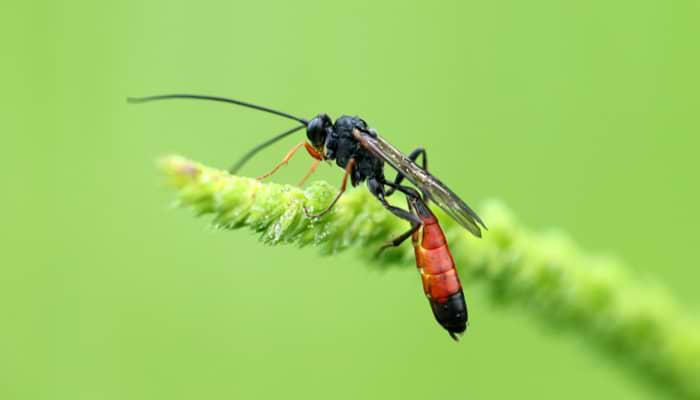
© Eileen Kumpf / Shutterstock.com
While on occasion insects may seem like a pest, from an agricultural point of view, they can be a great tool for pest management for crop farming. When it comes to farming, you will encounter two types of insects. In basic terms, some are good for crops and some are bad. The good type benefit your crops because they help pollinate plants, eat unwanted insects and break down the plant waste to recycle it back into the soil. The bad insects are voracious and will destroy your crops if they are not kept in check – so pests! Benefits to farmers Using insects for pest management can benefit farmers in several ways. First, it is a natural, organic method of pest control that does not use harmful chemicals and pesticides. It also saves money by introducing beneficial insects that can reproduce naturally, plus it saves time by removing the need for the farmer to go out regularly to apply pest control measures. According to statistics released by the government in 2020, a total area of 489,000 hectares of UK land is farmed organically by 5,800 landowners. This is an increase of 0.8% compared with 2019. Using an organic method of pest control is really important to our organic agricultural operations. England houses 62% of the total UK organic area. Of the organic crop farmers, 9% of the total land is used for growing cereals. Other than cereals, vegetables including potatoes and other arable crops are popular for organic farmers, with all having seen modest increases in 2020. New parasitic wasp species In May 2020, a new species of parasitic wasp was discovered in the UK. Scientists discovered it by chance when they found the unknown wasp in cabbage stem flea beetles. The scientists were studying the beetles to see whether their feeding preferences were a serious threat to oilseed rape crops. Further research revealed around 3,000 beetles on three sites around Norfolk were infested by the parasitic wasp that had laid eggs in the beetles' bodies. Genetic research and liaison with the UK's Natural History Museum and the Swedish Museum of Natural History revealed the wasp was an obscure species that had been identified only once in the past. Back in 2008, a small number of specimens were discovered, but it had never been seen again since. Scientists at the John Innes Centre carried out the first English published research and description of this parasitic wasp that was keeping the beetles' numbers at bay. The study has introduced the possibilities of employing the new species, Microctonus Brassicae, alongside existing species of genetically similar parasitic wasps to protect oilseed rape and other important crops prone to attack by the beetles. How does global warming impact insect life? Unfortunately, climate change and extreme weather events have a major impact on agricultural pests and crop production. Insect pests tend to be generally adaptable organisms and as such, they respond differently to global warming. The effects of rising temperatures, changing precipitation patterns and greater atmospheric CO2 levels can be significant when it comes to insect pests. The most important environmental factor that affects the insect population is temperature. A new report, released on 9th August by the Intergovernmental Panel on Climate Change, has been described as a "stark wake-up call". It suggests the effects of global warming on the planet will be worse than anticipated. Research has found for every additional 1°C temperature rise, rainfall will intensify by 7%, causing more extreme weather conditions. It also confirms what everyone suspected: that human activities are responsible for global warming. The report concludes it is "indisputable" that humans' activities are responsible for the "extreme climate events" that we're starting to witness. These include heatwaves, droughts and heavy rainfall leading to flooding. This kind of weather will become "frequent and more severe", according to the IPCC. Scientists fear global climate warming could trigger increased survival of insects over winter; growth in their geographic range; increased numbers of generations staying alive; more serious risk of invasive insect species and more insect-transmitted crop diseases. Research has been carried out jointly in 2021 by scientists at the Innovation Centre Nikola Tesla in Croatia and the University of Zagreb's Department of Agricultural Zoology and Department of Soil Amelioration in the Faculty of Agriculture. It concludes climate change may also affect the way pests interact with host plants and their natural enemies, making them more likely to survive in greater numbers. As climate change increases the problems with pests, there is a need for further development of pest management strategies in future, the study suggests. This must include continual monitoring of the climate and pest populations and modifying the current integrated pest management programmes.




